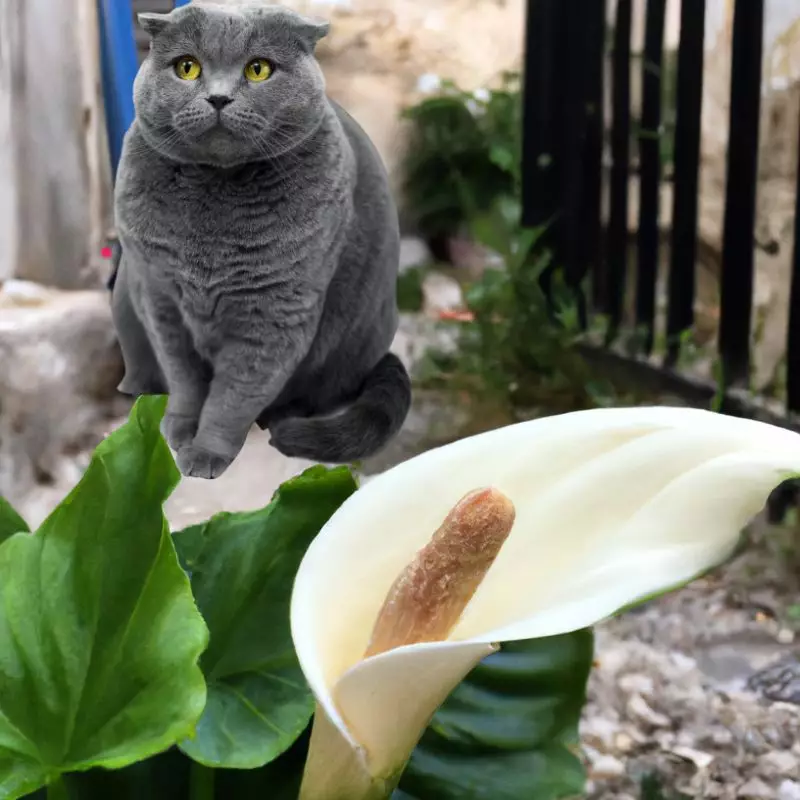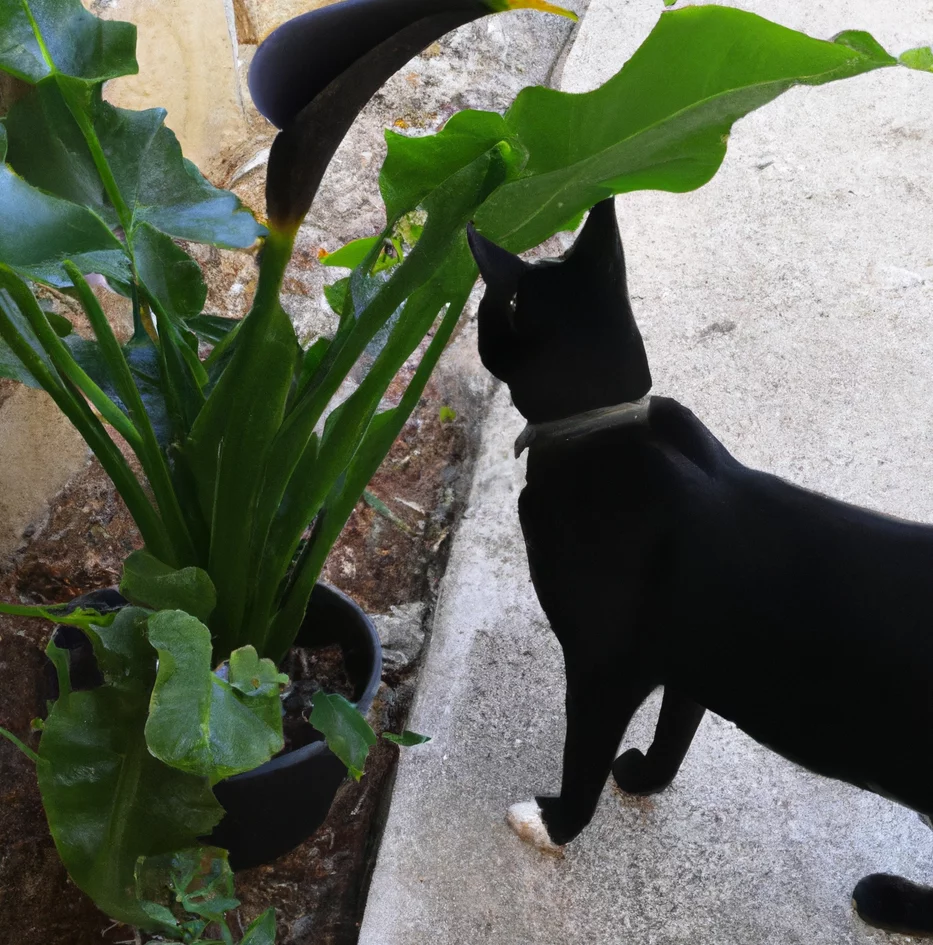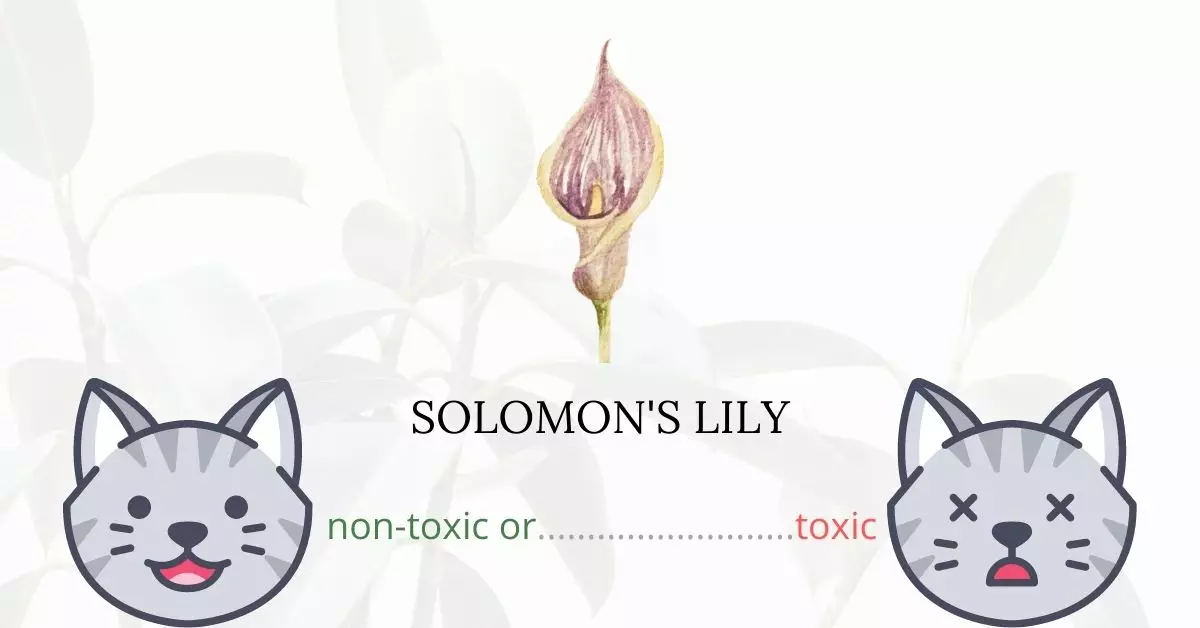Solomon’s lilies indeed pose a significant threat to cats. The entirety of the Solomon’s lily plant contains toxic insoluble calcium oxalates, which, when ingested by cats, provoke severe reactions. These harmful crystals are harbored in raphides and enveloped in gelatinous substances within the plant’s idioblasts. Once a cat consumes the plant, it releases calcium oxalate crystals throughout the mouth, esophagus, and digestive tract, inducing intense discomfort and inflammation. In extreme cases, the body’s immunological response to these toxins can cause swelling severe enough to obstruct a cat’s airway, posing a serious risk to their health and wellbeing.
This article has been meticulously written in collaboration with a team of experienced Doctors of Veterinary Medicine (DVMs) to ensure the accuracy and reliability of the information provided. With their valuable contributions, we can elucidate the potential hazards linked to various plants, specifically Solomon’s Lilies, and their implications on cats’ health. Furthermore, extensive research has been conducted utilizing high-authority resources such as ASPCA and PetMD to corroborate every detail pertaining to each plant examined in our study, reinforcing the credibility and precision of our findings and recommendations. Our mutual endeavor is to deliver the most current and precise information to keep your pets safe and healthy.
Clinical Signs of Solomon’s Lily Poisoning in Cats

In cats, exposure to Solomon’s Lily can precipitate a cascade of clinical symptoms, depending on the amount ingested and whether the contact was through ingestion, inhalation, or skin contact. Even a small dose of Solomon’s lily typically induces gastrointestinal discomfort and irritation due to the release of toxic insoluble calcium oxalates, which cause damage to the sensitive mucous membranes in the mouth, throat, and stomach.
- Excessive Drooling: This is often one of the first signs and is a result of the body’s attempt to eliminate the irritating substances within the plant.
- Oral Irritation: The sharp calcium oxalate crystals can cause intense irritation in the mouth.
- Swelling of the Lips, Tongue, and Throat: This occurs due to the body’s inflammatory response to the irritating crystals.
- Dysphagia (Difficulty Swallowing): The inflammation and irritation in the throat can make swallowing extremely painful and difficult.
- Nausea, Vomiting, and Diarrhea: These are common responses to gastrointestinal irritation, as the body attempts to expel the ingested toxins.
- Loss of Appetite: The discomfort and pain from oral and gastrointestinal irritation can result in a lack of desire to eat.
- Depression: Affected cats may exhibit lowered activity levels and a lack of interest in their surroundings due to the discomfort and pain experienced.
- Dyspnea (Difficulty Breathing): In severe cases, the swelling can obstruct the airways, making breathing laborious.
- Cardiac Abnormalities: The toxins can potentially affect the heart, leading to abnormal rhythms and other cardiac issues.
- Dilated Pupils: This may occur as a secondary symptom to systemic involvement and distress.
- Coma: In extreme cases, and usually when large quantities are ingested, the toxins can induce a coma, highlighting the critical importance of immediate veterinary intervention if Solomon’s Lily poisoning is suspected.
If you observe any of the above-mentioned signs, it is paramount to seek immediate veterinary assistance to alleviate the symptoms and prevent any long-lasting damage or catastrophic organ failure that can result from excessive exposure to Solomon’s lily toxins. Keep in mind that swift action is crucial in such instances to safeguard the well-being and life of your feline companion.
First Aid and Treatment of Solomon’s Lily Poisoning in Cats

The cat will need to be observed in order to determine the extent of the poisoning. Extensive vomiting or diarrhea may cause the cat to become dehydrated. Fluids and electrolytes can be given to the cat intravenously to assist restore fluid volume.
To alleviate symptoms, the cat may be given a variety of drugs throughout the event. To minimize edema and open the cat’s airways, antihistamines such as diphenhydramine may be provided. To minimize internal stomach discomfort, kapectolin or sucralfate might be used.
Recovery from Solomon’s Lily Poisoning in Cats

In most situations, only a little amount of plant material is eaten. In this case, the prognosis is favorable, with most cats recovering completely within a day. If a considerable amount of Solomon’s lily is consumed, symptoms may last for up to two weeks, with irreversible damage to the liver and kidneys likely. It is possible to die by eating this plant, however, this is seldom documented.
Prevention of Solomon’s Lily Poisoning in Cats
To avoid your cat from eating Solomon’s lily, keep it out of reach of your cat or remove it entirely from the house. To protect your cat from getting in contact with the plant outside is to keep him or her indoors.
If you love plants but have cats at home, check out these lists:





